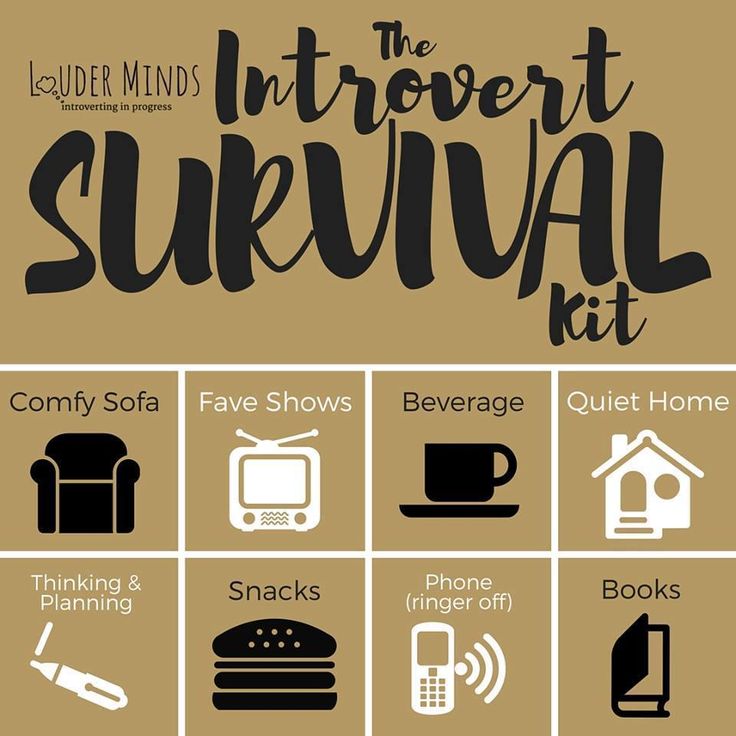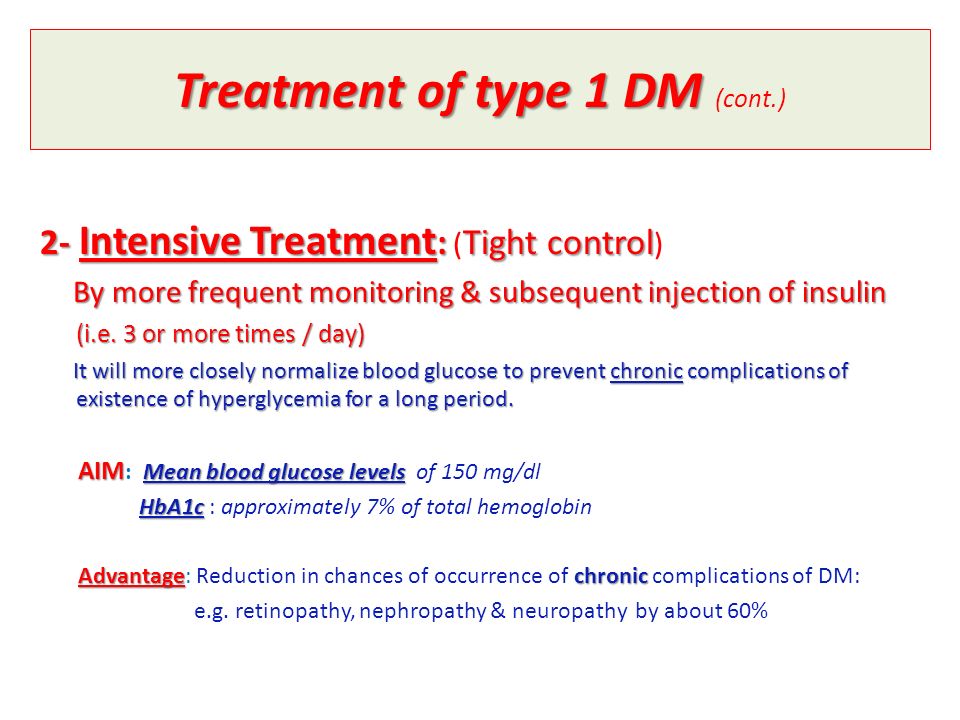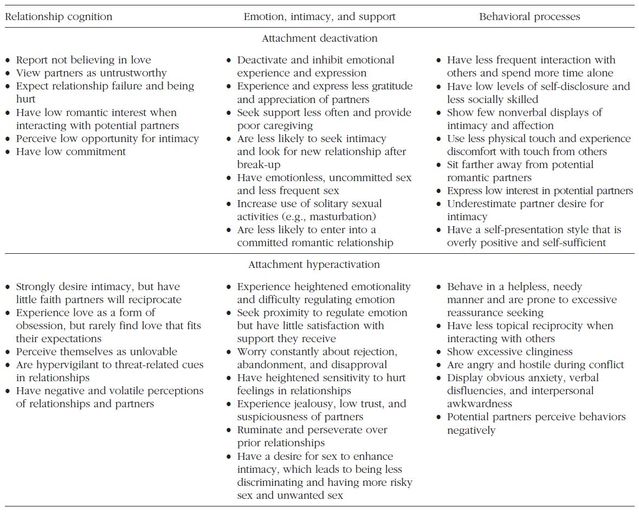Is my anxiety making me sick
Can Anxiety Cause Nausea? (& 5 More Questions About How Anxiety Might Feel)
WHEN SHOULD I WORRY ABOUT... May 26, 2021 - Katie McCallum
You're likely familiar with the emotional manifestations of anxiety:
- Nervousness
- Worrying
- Difficulty focusing
- Avoidance
But anxiety comes with physical symptoms, too. We have our fight-or-flight response to thank for this.
In the face of danger, whether real or perceived, your body reacts via the fight-or-flight response — revving up your autonomic nervous system, which controls respiration, heart rate, digestion and several other important bodily functions.
Everyone feels anxiety slightly differently, though.
For instance, maybe your muscles tighten and you feel like you're trembling. Or perhaps the first thing you notice is the butterflies — a sign that your heart rate is on the rise.
Or maybe your body goes straight into emotional sweating mode.
Given the various potential physical symptoms of anxiety, how do you know if what you're feeling is truly anxiety or something else?
Can anxiety cause nausea?Yes, anxiety can cause nausea and other gastrointestinal problems.
Outside of your brain, your digestive system contains the second largest number of nerves in your body. Some scientists even call your gut your "second brain."
It's no surprise then that the hormones and chemicals released when you're anxious can cause gut-related issues, including:
- Nausea
- Stomach cramps
- Loss of appetite
- Diarrhea or constipation
- Indigestion
Certain anxiety disorders can cause feelings of chest pain.
Chest pain is not a common symptom of the general anxiety you feel here and there.
However, if you suffer from a type of anxiety disorder called panic disorder, you may experience feelings of chest pain during a panic attack.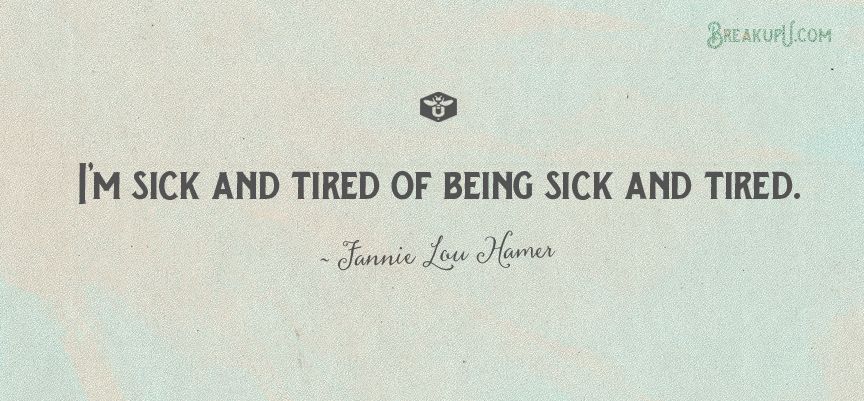
The most important consideration any time you're experiencing chest pain is the possibility of heart attack, which is a medical emergency.
Unfortunately, panic attack symptoms and heart attack symptoms can feel similar. So, whether you have a history of panic attacks or not, you should go to the emergency room if you're experiencing chest pain.
Can anxiety cause high blood pressure?No, but it can cause a temporary spike in your blood pressure.
High blood pressure, also called hypertension, is a condition in which your blood pressure is chronically higher than it should be. This places extra force on the walls of your blood vessels and, over time, can lead to several health conditions, including:
- Heart attack
- Heart failure
- Stroke
- Aneurysm
- Metabolic disease
General anxiety can cause a temporary, significant increase in your blood pressure, but the effects typically don't linger long enough to have a lasting impact on your health or cause long-term high blood pressure.
However, if you regularly experience blood pressure spikes due to chronic anxiety issues, your blood vessels can be affected in ways similar to high blood pressure.
Can anxiety cause dizziness?Anxiety disorders may be associated with dizziness.
People with anxiety disorders, particularly those with panic disorder, often complain of feeling dizzy or lightheaded.
However, the link between dizziness and anxiety isn't completely clear.
It's thought, though, that stress-related hormones or compounds released during the fight-or-flight response might affect the vestibular system within the inner ear, which coordinates balance and movement. This, in turn, may be the source of feelings of dizziness or lightheadedness in some individuals with anxiety disorders.
Can anxiety cause shortness of breath?Certain anxiety disorders can cause feelings of shortness of breath.
General anxiety increases your respiration rate, causing you to breathe more rapidly than usual. This faster breathing, also called hyperventilation, isn't the same as shortness of breath, however.
This faster breathing, also called hyperventilation, isn't the same as shortness of breath, however.
Shortness of breath feels like a tightening in your chest and often comes with trouble breathing. It's not a common symptom of general anxiety.
However, similar to feelings of chest pain, shortness of breath is associated with panic attacks and panic disorder, a specific type of anxiety disorder.
Since it can be a sign of heart attack or another life-threatening condition, unexplained shortness of breath is a medical emergency. Whether you have a history of panic attacks or not, you should go to the emergency room if you're experiencing sudden and/or severe shortness of breath.
Can anxiety cause headaches?Headaches are associated with chronic anxiety.
Headaches are common in and of themselves, but they aren't necessarily a common symptom of the general anxiety you might feel here and there.
However, headaches — including migraines — can be a complication of anxiety disorders, including generalized anxiety disorder (GAD). This type of anxiety disorder is characterized by persistent, excessive worrying that disrupts a person's day-to-day life.
This type of anxiety disorder is characterized by persistent, excessive worrying that disrupts a person's day-to-day life.
When stress hits and your heart rate increases, your breathing quickens or you start trembling, it can be alarming. So alarming that, in some cases, you might even feel anxiety about your anxiety symptoms. This can lead to a worsening of the anxiety you're already feeling.
When anxiety hits, try to calm yourself with these tips:
- Take deep, controlled breaths
- Close your eyes and try to clear your mind
- Release tension from your body by relaxing
- Accept your anxiety, challenge the validity of your concern and try to shift your focus
If your symptoms become severe, including chest pain and/or shortness of breath, seek immediate medical attention at an emergency room — even if you think it's related to anxiety.
And, if you're experiencing general anxiety more frequently than usual, consider talking to your doctor or finding a mental health provider — especially if it's disrupting your day-to-day life. He or she can help you understand why anxiety happens and what to do about it.
He or she can help you understand why anxiety happens and what to do about it.
Stay up-to-date
By signing up, you will receive our newsletter with articles, videos, health tips and more.
Please Enter Email
Please Enter Valid Email
Categories: When Should I Worry About...
Tags: Mental Health, Digestive Disorders, Headaches & Migraines, Heart & Vascular
Is Anxiety Making You Feel Sick & Ill?
Anxiety is an emotion linked to several mental health disorders. When people think of anxiety, often they think of worrying and stress. They think of fears and a feeling as though something is going to go wrong. Anxiety is seen in thoughts and behaviors.
But anxiety actually has a large physical component too. Stress can have a tremendous impact on your health, and one of the most common consequences is feeling ill and unwell.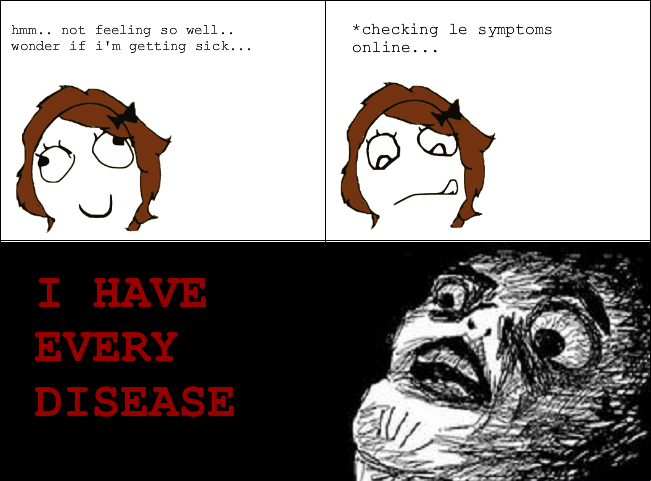
Anxiety Can Cause Feelings of Illness
The stress from anxiety can cause feelings of genuine sickness. These feelings are often very similar to the way physical illnesses make you feel. Your stomach can feel like it's rumbling and you may even feel nauseated. Feeling sick may be a sign that you've fallen ill, but it can also be a sign of anxiety.
While feeling sick may be the only physical symptom of anxiety, there are often others including breathlessness, dizziness and fatigue.
Why Does Anxiety Cause a Sick Feeling?
In general, that sick feeling is caused by a number of different factors. Just a few of which include:
- Standard Stress Response: Scientists believe that nausea, and some of the common feelings of illness, are the result of issues with related to the activation of the fight or flight response and the hormones related to stress, like cortisol.
- Gut and Abdominal Pressure: Anxiety can also lead to increased muscle tension that causes pressure on the stomach and guts.
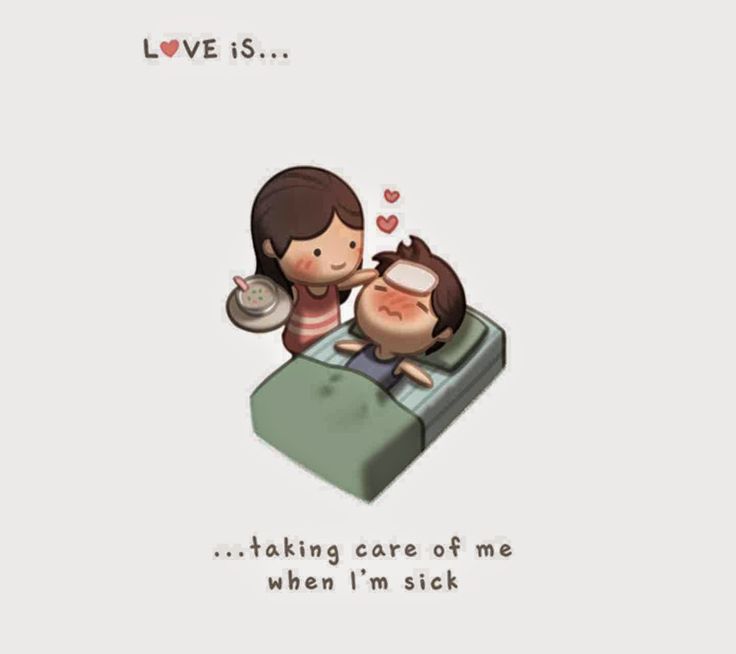 It is possible that this pressure affects how your stomach feels and thus gives you a sick feeling.
It is possible that this pressure affects how your stomach feels and thus gives you a sick feeling. - Mild Illness: Your body fights off germs every day. Anxiety can weaken your immune system, increasing the risk of developing common minor illnesses. This may also contribute to a feeling of nausea and sickness.
Feeling ill is something that often causes concern. Some people feel so sick that they vomit or experience profound nausea that keeps them away from their activities. In this way, the physical effects of anxiety can cause further anxiety, creating a cycle.
Some people experience more than just nausea when anxious. They may experience other symptoms that are similar to catching a cold or flu. They may feel like their glands are swollen, or their tongue is dry. They may feel lightheaded. They may even cough or experience severe stomach discomfort, like indigestion.
Are You Sick?
When anxiety is causing these symptoms, they're unpleasant but not dangerous. Although you feel physically unwell, this is likely due to the body's natural fight or flight response rather than a disease. Fight or flight is thought to be an evolutionary survival mechanism to get us out of dangerous situations.
Although you feel physically unwell, this is likely due to the body's natural fight or flight response rather than a disease. Fight or flight is thought to be an evolutionary survival mechanism to get us out of dangerous situations.
The problem isn't the bodily symptoms themselves, which can be very useful in certain situations. The problem is that you're experiencing the response at unhelpful times and for long periods, often when it is inconvenient. People feel these symptoms for different reasons:
- Situational Illness Feelings - some people experience anxiety as a result of various situations that come and go. For example, before a test, before a first date, before proposing, etc.
- Chronic Illness Feelings - over the long term, chronic anxiety can also cause you to feel sick. This may relate to worrying situations that do not end, and is very often indicative of an anxiety disorder.
Situational anxiety is actually natural. It's uncomfortable, but it's natural. Back in school, if you felt severe illness before a big test, it's because you genuinely feared that test. It may even have motivated you to study harder. While tests don’t usually provoke extreme fear, the reaction is not unexpected.
It's uncomfortable, but it's natural. Back in school, if you felt severe illness before a big test, it's because you genuinely feared that test. It may even have motivated you to study harder. While tests don’t usually provoke extreme fear, the reaction is not unexpected.
Feelings of chronic illness from anxiety can be even more problematic because when your anxiety doesn't go away, the feeling of being ill won't go away either. It becomes something that makes you feel worse about your health, saps your energy and gets in the way of your day to day life. This is usually a sign that you need to do something about the anxiety.
Temporarily Relief for the Sick Feeling
Most over the counter medicines that calm the stomach can be mildly effective at relieving most of the sick feeling. Even though the nausea is caused by anxiety, some of the symptoms can be relieved with medicines.
For issues like swollen glands, treating them can be a bit more complicated. That's because your glands aren't always swollen, and if they are it is not usually that severe. Yet focusing on that part of the body can make us hyper sensitive to physical changes, and they feel more distressing. Your body is so attuned to the way you feel that it starts to believe that it feels significant issues, out of proportion with the reality.
Yet focusing on that part of the body can make us hyper sensitive to physical changes, and they feel more distressing. Your body is so attuned to the way you feel that it starts to believe that it feels significant issues, out of proportion with the reality.
The only way to reduce that is to reduce your anxiety and to do that you need to start to understand your anxiety better. Explore our website for more information, or speak to a specialist to begin treatment.
SUMMARY:
Anxiety can cause problems with the gut, and can lead to adrenaline related changes to the stomach, all of which can cause feelings of illness. Chronic anxiety may also have other complications. No matter the cause, anxiety reduction is the only effective long term solution to eliminate these feelings.
Was this article helpful?
- Yes
- No
All diseases are from the nerves.
 Is it so?
Is it so? Psychosomatics is a term adopted in medicine to refer to such an approach to explaining diseases, in which special attention is paid to the role of mental factors in the occurrence, course and outcome of diseases. Psychosomatics studies the influence of psychological factors on the occurrence of a number of somatic (bodily) diseases.
According to scientists, about 50% of all diseases in industrialized countries are psychogenic in nature. The main method of treatment is psychotherapy, the purpose of which is to establish connections hidden for the patient himself between his emotional conflicts and the onset of symptoms of the disease.
As you know, pain indicates that something in the body is not working properly. This is a kind of signal for help. When our emotions remain unheard for a long time, and mental pain continues to grow, the body comes to the rescue. The most vulnerable place of a person suffers. In some people, with severe stress, the cardiovascular system suffers, in others, the intestines, etc. Each person has his own body reactions, including those due to hereditary predisposition. Diseases such as hypertension, bronchial asthma, polyarthritis, neurodermatitis, migraine are classified as psychosomatic diseases. And the list of diseases, the occurrence of which is associated with the human psyche, is growing.
Each person has his own body reactions, including those due to hereditary predisposition. Diseases such as hypertension, bronchial asthma, polyarthritis, neurodermatitis, migraine are classified as psychosomatic diseases. And the list of diseases, the occurrence of which is associated with the human psyche, is growing.
There are several causes of disease :
1. Genetic or constitutional predisposition of the organ.
2. Stress, psycho trauma.
3. Internal conflict.
To paraphrase a famous saying, you can say "Tell me what you are sick of, and I will tell you who you are."
The table below lists the main psychological causes of disease. It is worth noting that this is not a universal table and it will not replace traditional medicine, but it can be a good help in finding the harmony of mind and body.
Alcoholism, drug addiction . Unable to deal with anything. Terrible fear. The desire to get away from everyone and everything. Reluctance to be here.
The desire to get away from everyone and everything. Reluctance to be here.
Feelings of futility, inadequacy. Rejection of self.
Allergy . Who can't you stand? Denial of one's own power.
A protest against something that cannot be expressed. It often happens that the parents of an allergic person often argued and had completely different views on life.
Appendicitis . Fear. Fear of life. Blocking everything good.
Insomnia. Fear. distrust of the life process. Guilt.
Escape from life, unwillingness to recognize its shadow sides.
Vegetative dystonia . Infantilism, low self-esteem, a tendency to doubt and self-accusation.
Excessive appetite . Fear. Self-defense. distrust of life. Feverish overflow and getting rid of feelings of self-hatred.
Obesity . Hypersensitivity. Often symbolizes fear and the need for protection.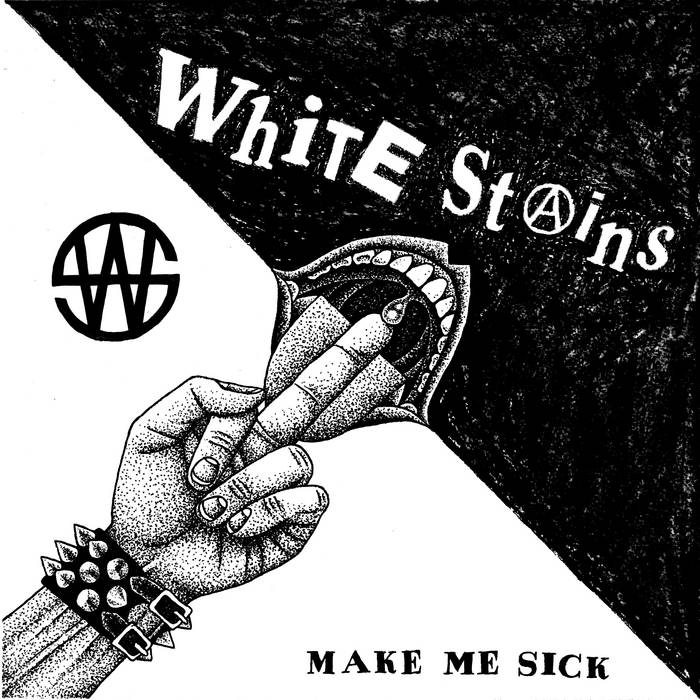 Fear can serve as a cover for hidden anger and unwillingness to forgive. Trust in yourself, in the very process of life, refraining from negative thoughts - these are the ways to lose weight.
Fear can serve as a cover for hidden anger and unwillingness to forgive. Trust in yourself, in the very process of life, refraining from negative thoughts - these are the ways to lose weight.
Obesity is a manifestation of a tendency to defend oneself against something. The feeling of inner emptiness often awakens the appetite. Eating provides many people with a sense of acquisition. But mental deficiency cannot be filled with food. Lack of confidence in life and fear of life circumstances plunge a person into an attempt to fill the spiritual emptiness with external means.
Lack of appetite . Denial of personal life. Strong feelings of fear, self-hatred and self-denial.
Khudoba . Such people do not like themselves, they feel insignificant in comparison with others, they are afraid of being rejected. And so they try to be very kind.
Cellulitis (inflammation of the subcutaneous tissue) . Accumulated anger and self-punishment. Forces herself to believe that nothing bothers her.
Accumulated anger and self-punishment. Forces herself to believe that nothing bothers her.
Myopia - Fear of the future.
Glaucoma The most obstinate unwillingness to forgive. They press old grievances. Crushed by all this.
Farsightedness - Feeling yourself out of this world.
Cataract . Inability to look ahead with joy. Foggy future.
Conjunctivitis . Some event happened in life that caused intense anger, and this anger is intensified by the fear of reliving this event again.
Blindness, retinal detachment, severe head trauma . A harsh assessment of the behavior of another person, jealousy, coupled with contempt, arrogance and rigidity.
Dry eyes . Evil eyes. Unwillingness to look with love. I'd rather die than forgive. Sometimes a manifestation of malice.
Barley . Occurs in a very emotional person who cannot get along with what he sees. And who feels anger and irritation when he realizes that other people see the world differently.
Occurs in a very emotional person who cannot get along with what he sees. And who feels anger and irritation when he realizes that other people see the world differently.
Head: diseases . Jealousy, envy, hatred and resentment.
Headaches . Self underestimation. Self-criticism. Fear. Headaches occur when we feel inferior, humiliated. Forgive yourself and your headache will disappear by itself.
Headaches often come from low self-esteem, as well as low resistance to even minor stresses. A person complaining of constant headaches literally consists of psychological and physical clamps and tension. The habitual state of the nervous system is to always be at the limit of its capabilities. And the first symptom of future diseases is a headache. Therefore, doctors working with such patients first teach them to relax.
Loss of contact with one's true self. The desire to justify the high expectations of others. Trying to avoid any mistakes.
Trying to avoid any mistakes.
Throat: diseases . Inability to take care of oneself. Swallowed anger. Crisis of creativity. Unwillingness to change. Throat problems arise from the feeling that we "have no right" and from a sense of our own inferiority.
The throat, in addition, is a part of the body where all our creative energy is concentrated. When we resist change, we most often develop throat problems. You need to give yourself the right to do what you want, without blaming yourself and without fear of disturbing others. A sore throat is always an annoyance. If he is accompanied by a cold, then, in addition to this, also confusion.
Angina . You refrain from harsh words. Feeling unable to express yourself. Feeling angry at not being able to handle a situation.
Laryngitis . Anger makes it difficult to speak. Fear makes it difficult to speak. They dominate me.
Tonsillitis . Fear. Suppressed emotions. Silent creativity. Belief in one's inability to speak for oneself and independently achieve the satisfaction of one's needs.
Fear. Suppressed emotions. Silent creativity. Belief in one's inability to speak for oneself and independently achieve the satisfaction of one's needs.
Diabetes . Longing for the unfulfilled. Strong need for control. Deep grief. There is nothing pleasant left. Diabetes can be caused by a need to control, sadness, and an inability to receive and internalize love. The diabetic cannot bear affection and love, although he craves them. He unconsciously rejects love, despite the fact that at a deep level he feels a strong need for it. Being in conflict with himself, in rejection of himself, he is not able to accept love from others. Finding inner peace of mind, openness to accepting love and the ability to love is the beginning of a way out of the disease. Attempts to control, unrealistic expectations of universal happiness and sadness to the point of hopelessness that this is not feasible. The inability to live one's own life, because it does not allow (does not know how) to rejoice and enjoy one's life events.
Respiratory : diseases. Fear or refusal to inhale life fully. You do not recognize your right to occupy space or exist at all. Fear. Resistance to change. Distrust in the process of change.
Suppressed sexual desires. wants too much; takes more than he should and gives with great difficulty. He wants to seem stronger than he is and thereby arouse love for himself.
Gastric diseases . Horror. Fear of the new. Inability to learn new things. We do not know how to assimilate a new life situation. The stomach is sensitive to our problems, fears, hatred of others and ourselves, dissatisfaction with ourselves and our fate. Suppression of these feelings, unwillingness to admit them to oneself, an attempt to ignore and "forget" them instead of understanding, understanding and resolving can cause various stomach disorders. Gastric functions are upset in people who bashfully react to their desire to receive help or a manifestation of love from another person, the desire to lean on someone. In other cases, the conflict is expressed in a sense of guilt because of the desire to take something by force from another. The reason why gastric functions are so vulnerable to such conflict is that food represents the first explicit satisfaction of a receptive-collective desire. In the mind of a child, the desire to be loved and the desire to be fed are deeply connected. When, in later life, the desire to receive help from another causes shame or shyness, which is not uncommon in a society whose main value is independence, this desire finds a regressive satisfaction in an increased craving for food. This craving stimulates the secretion of the stomach, and a chronic increase in secretion in a predisposed individual can lead to the formation of an ulcer.
In other cases, the conflict is expressed in a sense of guilt because of the desire to take something by force from another. The reason why gastric functions are so vulnerable to such conflict is that food represents the first explicit satisfaction of a receptive-collective desire. In the mind of a child, the desire to be loved and the desire to be fed are deeply connected. When, in later life, the desire to receive help from another causes shame or shyness, which is not uncommon in a society whose main value is independence, this desire finds a regressive satisfaction in an increased craving for food. This craving stimulates the secretion of the stomach, and a chronic increase in secretion in a predisposed individual can lead to the formation of an ulcer.
Gastritis . Protracted uncertainty. Feeling of doom.
Irritation. A strong outburst of anger in the near past.
Heartburn . Fear. The grip of fear. Heartburn, excess gastric juice indicates repressed aggressiveness. The solution to the problem at the psychosomatic level is the transformation of the forces of repressed aggression into the action of an active attitude to life and circumstances.
The solution to the problem at the psychosomatic level is the transformation of the forces of repressed aggression into the action of an active attitude to life and circumstances.
Gastric and duodenal ulcer . Fear. Firm belief that you are defective. We fear that we are not good enough for our parents, bosses, teachers, etc. We literally can't stomach what we are. We always try to please others. No matter what position you hold at work, you may have a complete lack of self-esteem. In almost all ulcer patients, there is a deep internal conflict between the desire for independence, which they highly value, and the need for protection, support and care laid down from childhood. These are people who are trying to prove to everyone that they are needed and indispensable. Envy. People with peptic ulcer are characterized by anxiety, irritability, increased diligence and a heightened sense of duty. They are characterized by low self-esteem, accompanied by excessive vulnerability, shyness, resentment, self-doubt and, at the same time, increased demands on themselves, suspiciousness. It is noticed that these people strive to do much more than they can really do. For them, a tendency to actively overcome difficulties, combined with strong internal anxiety, is typical. Anxiety, hypochondria. Suppressed feeling of dependence. Irritation, indignation and at the same time helplessness from attempts to change oneself, adjusting to someone's expectations.
It is noticed that these people strive to do much more than they can really do. For them, a tendency to actively overcome difficulties, combined with strong internal anxiety, is typical. Anxiety, hypochondria. Suppressed feeling of dependence. Irritation, indignation and at the same time helplessness from attempts to change oneself, adjusting to someone's expectations.
Hemorrhoids . Fear of not meeting the allotted time. Anger in the past. Heavier feelings. Inability to get rid of accumulated problems, resentments and emotions. The joy of life is drowned in anger and sadness. Fear of separation. Suppressed fear. Gotta do the job you hate. Something urgently needs to be completed in order to receive certain material benefits.
Constipation . Unwillingness to part with outdated thoughts. Stuck in the past. Sometimes in acrimoniousness. Constipation indicates an excess of accumulated feelings, ideas and experiences that a person cannot or does not want to part with, cannot make room for new ones. The tendency to dramatize some event in one's past, the inability to resolve that situation (complete the gestalt)
The tendency to dramatize some event in one's past, the inability to resolve that situation (complete the gestalt)
Irritable bowel syndrome . Infantilism, low self-esteem, a tendency to doubt and self-accusation. Anxiety, hypochondria.
Colic . Irritation, impatience, dissatisfaction with the environment.
Colitis. Uncertainty. Symbolizes the ability to easily part with the past. Fear of letting go of something. Unreliability.
Flatulence . Tightness. Fear of losing something significant or being in a hopeless situation. Worry about the future. Unrealized ideas.
Indigestion . Animal fear, horror, restlessness. Grunts and complaints.
Belching . Fear. Too greedy attitude to life.
Diarrhea . Fear. Refusal. Runaway.
Acne (acne) . Disagreement with yourself. Lack of self love
Lack of self love
A sign of a subconscious desire to push others away, not to let yourself be considered. (i.e. not enough self-respect and acceptance of yourself and your inner beauty)
Furuncle . A particular situation poisons a person's life, causing intense feelings of anger, anxiety and fear.
Neck: diseases . Unwillingness to see other sides of the issue. Stubbornness. Lack of flexibility. He pretends that the disturbing situation does not bother him at all.
Eczema . irreconcilable antagonism. Mental breakdowns. Uncertainty about your future.
Bones, Skeleton: Issues . A person values himself only for what turns out to be useful to others.
Arthritis . The feeling that you are not loved. Criticism, resentment. They cannot say no and blame others for being exploited. For such people, it is important to learn how to say “no” if necessary.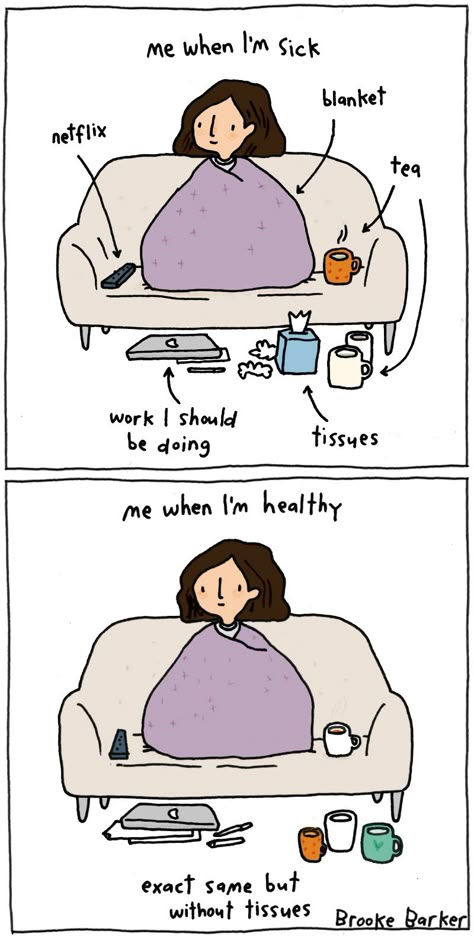 Arthritic - one who is always ready to attack, but suppresses this desire in himself. There is a significant emotional influence on the muscular expression of feelings, which is extremely tightly controlled. Desire for punishment, self-reproach. victim state. A person is too strict with himself, does not allow himself to relax, does not know how to express his desires and needs. The “inner critic” is too well developed.
Arthritic - one who is always ready to attack, but suppresses this desire in himself. There is a significant emotional influence on the muscular expression of feelings, which is extremely tightly controlled. Desire for punishment, self-reproach. victim state. A person is too strict with himself, does not allow himself to relax, does not know how to express his desires and needs. The “inner critic” is too well developed.
Herniated discs . The feeling that life has completely deprived you of support.
Curvature of the spine . Inability to go with the flow of life. Fear and attempts to hold on to outdated thoughts. distrust of life. Lack of integrity of nature. No boldness of conviction.
Lower back pain . Unrealized expectations in the field of interpersonal relationships.
Sciatica . Hypocrisy. Fear for money and for the future.
Back: diseases of the lower part . Fear of money. Lack of financial support. Fear of poverty, material disadvantage. Forced to do everything myself. Fear of being used and getting nothing in return.
Fear of money. Lack of financial support. Fear of poverty, material disadvantage. Forced to do everything myself. Fear of being used and getting nothing in return.
Back: diseases of the middle part . Guilt. Attention is riveted to everything that is in the past. "Leave me alone". The belief that no one can be trusted.
Back: diseases of the upper part . Lack of moral support. The feeling that you are not loved. Holding back feelings of love.
Blood, veins, arteries: diseases . Lack of joy. No movement of thought. Inability to listen to one's own needs.
Anemia . Lack of joy. Fear of life. Belief in one's own inferiority deprives one of the joys of life.
Arteries (problems) . Problems with arteries - inability to enjoy life. He does not know how to listen to his heart and create situations associated with joy and fun.
Atherosclerosis . Resistance. Tension. Refusal to see the good.
Resistance. Tension. Refusal to see the good.
Frequent upset due to sharp criticism.
Varicose veins . Being in a situation you hate. Disapproval. Feeling overwhelmed and overwhelmed by work. Exaggeration of the seriousness of problems. Inability to relax due to guilt when receiving pleasure.
Psychosomatics - one of the areas of work of our doctor - Orekhova Violetta Pavlovna (psychotherapist) . Psychotherapy will help to deal with such problems and cure a number of diseases. In our Medical Center there are both individual and group classes. Also, Dr. Orekhova accepts remotely. When there is no time to come to the center, or the patient wants anonymity, then the classes are conducted using the Internet connection.
Memory impaired
Memory impaired
Memory disorders are one of the manifestations of dementia.
Dementia (acquired dementia) is a disease caused by an organic lesion of the brain.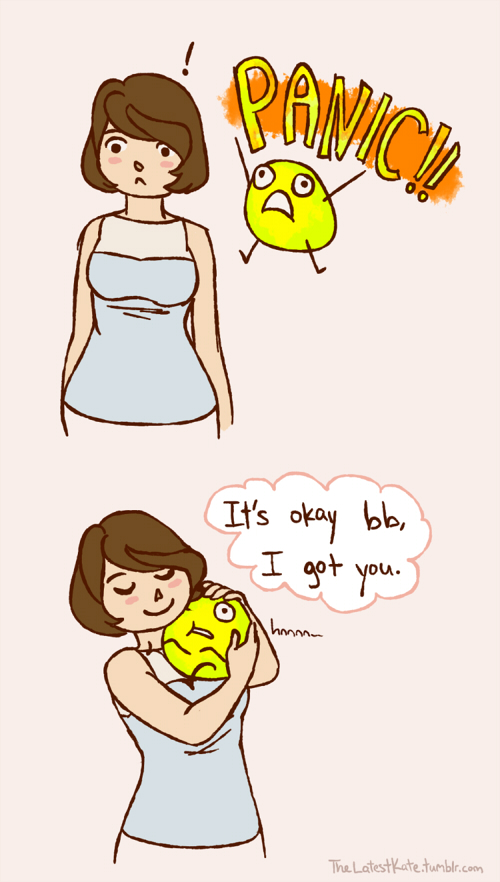 Dementia is characterized by persistent disorders of the intellect (memory, thinking), emotional disturbances and a decrease in volitional qualities. The diagnosis is established on the basis of clinical criteria and instrumental studies (CT, MRI of the brain). The causes of dementia in the elderly are most often vascular diseases (hypertension, strokes, cerebral atherosclerosis) and atrophic diseases (for example, Alzheimer's disease).
Dementia is characterized by persistent disorders of the intellect (memory, thinking), emotional disturbances and a decrease in volitional qualities. The diagnosis is established on the basis of clinical criteria and instrumental studies (CT, MRI of the brain). The causes of dementia in the elderly are most often vascular diseases (hypertension, strokes, cerebral atherosclerosis) and atrophic diseases (for example, Alzheimer's disease).
Alzheimer's disease is a disease that occurs due to brain damage associated with metabolic disorders. At the initial stages, memory is disturbed, patients forget what was recently said, why they left the house, what they wanted to buy in the store, etc. As a result, they experience difficulties in housekeeping, in the workplace. Reminders don't always help them. Often, patients attribute memory impairment to absent-mindedness or overwork and do not go to doctors, although it is at the first stage of the disease that effective drug therapy is possible. Patients may change their behavior, they may become irritable, show aggression. At this stage, patients can still perform daily self-care activities. In the future, the understanding of someone else's speech is disturbed, gradually the person forgets everything - the place of birth, the names of his children, ceases to recognize familiar people, household items, gets lost in public places. Patients do not find the right words, often replace them with others, sometimes close in meaning, sometimes not. Instead of words, their fragments are often pronounced, syllables are rearranged, the vocabulary is depleted. There comes a pronounced stage of the disease, when patients can no longer cook their own food, do their usual homework, and shop. Personality traits are erased, patients differ from one another only in the severity of disorders. Frequent symptoms are aimless wandering and vagrancy, more often at night (patients often leave home because they are not understood). Misunderstanding of the patient by relatives can be expressed in patients in tears, in malice, verbal or physical aggression.
Patients may change their behavior, they may become irritable, show aggression. At this stage, patients can still perform daily self-care activities. In the future, the understanding of someone else's speech is disturbed, gradually the person forgets everything - the place of birth, the names of his children, ceases to recognize familiar people, household items, gets lost in public places. Patients do not find the right words, often replace them with others, sometimes close in meaning, sometimes not. Instead of words, their fragments are often pronounced, syllables are rearranged, the vocabulary is depleted. There comes a pronounced stage of the disease, when patients can no longer cook their own food, do their usual homework, and shop. Personality traits are erased, patients differ from one another only in the severity of disorders. Frequent symptoms are aimless wandering and vagrancy, more often at night (patients often leave home because they are not understood). Misunderstanding of the patient by relatives can be expressed in patients in tears, in malice, verbal or physical aggression. Short-term hallucinations, psychomotor agitation are possible. Patients become sloppy, untidy. In the advanced stage, patients are inactive, completely dependent on the people caring for them. The patient cannot give his name, address, does not recognize relatives, familiar objects. Sometimes you may not even recognize yourself in the mirror. The patient experiences difficulties in eating, loses the ability to move, there is a sharp restriction or virtual absence of speech, suffers from urinary and fecal incontinence.
Short-term hallucinations, psychomotor agitation are possible. Patients become sloppy, untidy. In the advanced stage, patients are inactive, completely dependent on the people caring for them. The patient cannot give his name, address, does not recognize relatives, familiar objects. Sometimes you may not even recognize yourself in the mirror. The patient experiences difficulties in eating, loses the ability to move, there is a sharp restriction or virtual absence of speech, suffers from urinary and fecal incontinence.
Vascular dementia occurs as a result of vascular damage due to atherosclerosis and hypertension. There is "ischemia" - the necrosis of part of the nervous tissue (including microstrokes, which can occur almost imperceptibly, manifest, for example, only with a severe headache). With vascular disorders, patients complain of dizziness, tinnitus, headaches, sensitivity to changes in atmospheric pressure. Initial manifestations can occur as early as the age of 50, sometimes even earlier. At the advanced stages, personality changes occur - incredulous people become intolerably suspicious, irritable people become openly malicious, careless people become thoughtlessly lightweight. The danger is excessive gullibility, when they can fall under the influence of others because of their gullibility, suggestibility. Those who were stingy and suspicious in the past may develop delusions of persecution, delusions of damage - “they want to poison with gas”, “neighbors rob”, “relatives want to take possession of my apartment”. People who in the past were prone to anxious self-observation, depressive reactions often develop depression. The patient becomes emotionally unstable - he cries, and then laughs in conversation, often anxious, confused, sentimental. Sleep is often disturbed - it becomes shortened, the "sleep-wake" rhythm is lost, sleep becomes intermittent at night, and during the day the patients are in a semi-drowsy state. Patients can easily have fears - fear of "stroke", "cancer", etc.
At the advanced stages, personality changes occur - incredulous people become intolerably suspicious, irritable people become openly malicious, careless people become thoughtlessly lightweight. The danger is excessive gullibility, when they can fall under the influence of others because of their gullibility, suggestibility. Those who were stingy and suspicious in the past may develop delusions of persecution, delusions of damage - “they want to poison with gas”, “neighbors rob”, “relatives want to take possession of my apartment”. People who in the past were prone to anxious self-observation, depressive reactions often develop depression. The patient becomes emotionally unstable - he cries, and then laughs in conversation, often anxious, confused, sentimental. Sleep is often disturbed - it becomes shortened, the "sleep-wake" rhythm is lost, sleep becomes intermittent at night, and during the day the patients are in a semi-drowsy state. Patients can easily have fears - fear of "stroke", "cancer", etc. In the future, such a symptom as "confusion" may occur, when the patient cannot understand where he is and even who he is. At night, motor anxiety is possible - he gets up, wanders around the apartment, touches sleeping people, sorts out objects that come under his arm, mutters something. In this state, he can open the gas, the front door, water. In the advanced stages, people experience an almost complete loss of memory for the events that are happening to them now. Patients at this stage can say that they “went to work” yesterday, that their parents are alive and “live with them”, that is, memories from the past replace the events that actually happened to them. Patients cease to recognize others, the meaning of speech is violated.
In the future, such a symptom as "confusion" may occur, when the patient cannot understand where he is and even who he is. At night, motor anxiety is possible - he gets up, wanders around the apartment, touches sleeping people, sorts out objects that come under his arm, mutters something. In this state, he can open the gas, the front door, water. In the advanced stages, people experience an almost complete loss of memory for the events that are happening to them now. Patients at this stage can say that they “went to work” yesterday, that their parents are alive and “live with them”, that is, memories from the past replace the events that actually happened to them. Patients cease to recognize others, the meaning of speech is violated.
The following are practical tips for communicating with a relative with dementia:
- Try to tune in to a positive nature of interaction with the patient: Talk to your sick relative in a pleasant and polite tone. Use facial expressions, voice timbre and tactile contacts to convey information and tender feelings.

- Communicate with the patient in a caring, but at the same time confident and clear tone.
- When talking to the patient, limit exposure to distractions and extraneous noise. Before speaking, get the patient's attention: address him by name, identify your personality and relationship (degree of relationship) with the patient, use non-verbal signs and touch to keep his attention.
- State your message clearly. Use simple words and sentences. Speak slowly, clearly, in an encouraging tone.
- Ask simple questions that are easy to answer. Ask one question at a time; The best one is one that can be answered "yes" or "no". Refrain from asking difficult questions or providing too much choice. If he's working on an answer, it's natural to give him a hint.
- Be patient with the patient and give them time (perhaps a few minutes) to react or answer a question.
- If necessary, repeat important information, possibly more than once.
- Try to help the patient remember specific data (time, place, names of acquaintances and relatives).

- Be understanding, even if it is sometimes difficult, and try not to get angry with the patient if he cannot do something, or misbehaves, since his behavior, like memory impairment, is a manifestation of his disease.
- Try not to react to reproaches and reproaches.
- Praise can achieve more than criticism. With the correct behavior of the patient, praise can be expressed in words, touch or smile.
- Respond with love and encouragement in your voice. People with dementia often feel embarrassed, anxious, and insecure. In addition, they often distortedly see the reality around them, in particular, they can remember things that never took place in real life. Avoid convincing them that you are wrong. Often, nothing helps establish rapport as effectively as a touch, a handshake, a hug, and praise.
- Break the action into a chain of successive steps. You can inspire a person to complete a task within their power by gently reminding them of what they must do in the sequence of steps required to complete the task.
 Thus, you help him to do what he more, due to his condition, can not cope on his own. The use of visual cues can be very helpful, such as pointing with your hand where to place your soup bowl.
Thus, you help him to do what he more, due to his condition, can not cope on his own. The use of visual cues can be very helpful, such as pointing with your hand where to place your soup bowl. - If reaching the goal becomes difficult, distract the patient and set another goal for him. If the patient is upset, try a change of occupation. For example, ask him for help or offer to go for a walk.
- Remember the good old days. Remembering the past is often a soothing and life-affirming activity. Many people with dementia cannot remember what happened 45 minutes ago, but they clearly recall events from 45 years ago.
- The patient needs stimuli for mental activity that do not require excessive effort from him, and he especially needs an interlocutor.
- Take care of the invariability of the patient's daily routine. 9029eight
- Simple rules and firm habits are of great help to all older people, and especially those with dementia.
- Concomitant diseases (high blood pressure, diabetes mellitus, thyroid pathology, and others) must be diagnosed and treated in a timely manner - this is also the task of those who care for the patient.

- Very important for the elderly: good nutrition and adequate fluid intake, as well as regular movement.
Please note that in the early stages of a memory disorder, such as a diagnosis of Alzheimer's disease, people may feel some discomfort with excessive family care. Therefore, assistance should meet the needs of the patient and be aimed at maintaining the activity and independence of the patient.
Advice for loved ones of a patient with Alzheimer's disease:
- Create the feeling that you are always there. Call, come visit - it means a lot to the patient
- Avoid situations that reduce self-esteem. Focus the person's attention on those actions that he manages to perform on his own.
- Take care of the little things. Bring something tasty, run to the post office, etc.
- Be very clear and concise in your offers of help. Distribute responsibilities in the family, make a list with areas of responsibility for each of its members.

- Strive to know more about Alzheimer's disease, what are the manifestations of the disease and how to respond to them.
- Try to get each member of the family involved in joint activities. Formulate feasible duties for the patient when organizing joint events.
- Be an attentive listener. Try to understand and accept what the patient says.
- Encourage a healthy lifestyle. Give practical advice on the implementation of the daily regimen, health-improving exercises and proper nutrition.
In case of high risk factors for vascular dementia (atherosclerosis, previous strokes, hypertension), it is necessary to pay attention to the implementation of doctors' recommendations, control of blood pressure levels, and regular preventive courses of treatment. See also recommendations for patients with arterial hypertension .
For a consultation at the " Memory Center " you need to make an appointment with a psychotherapist.

